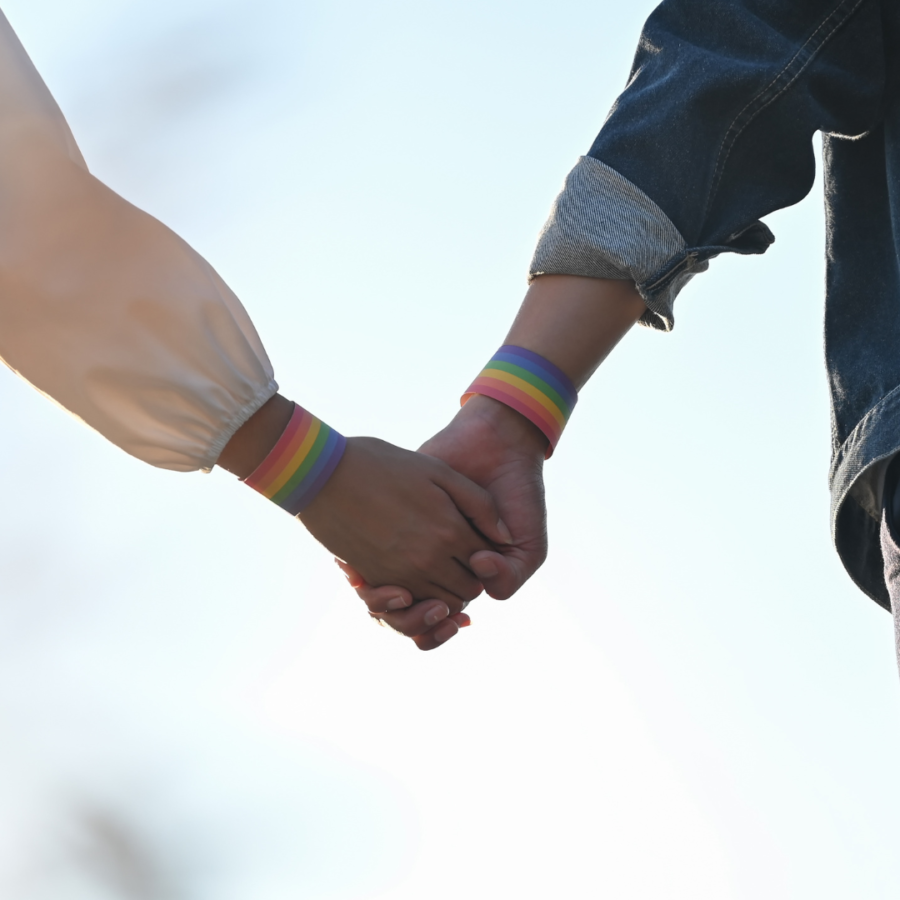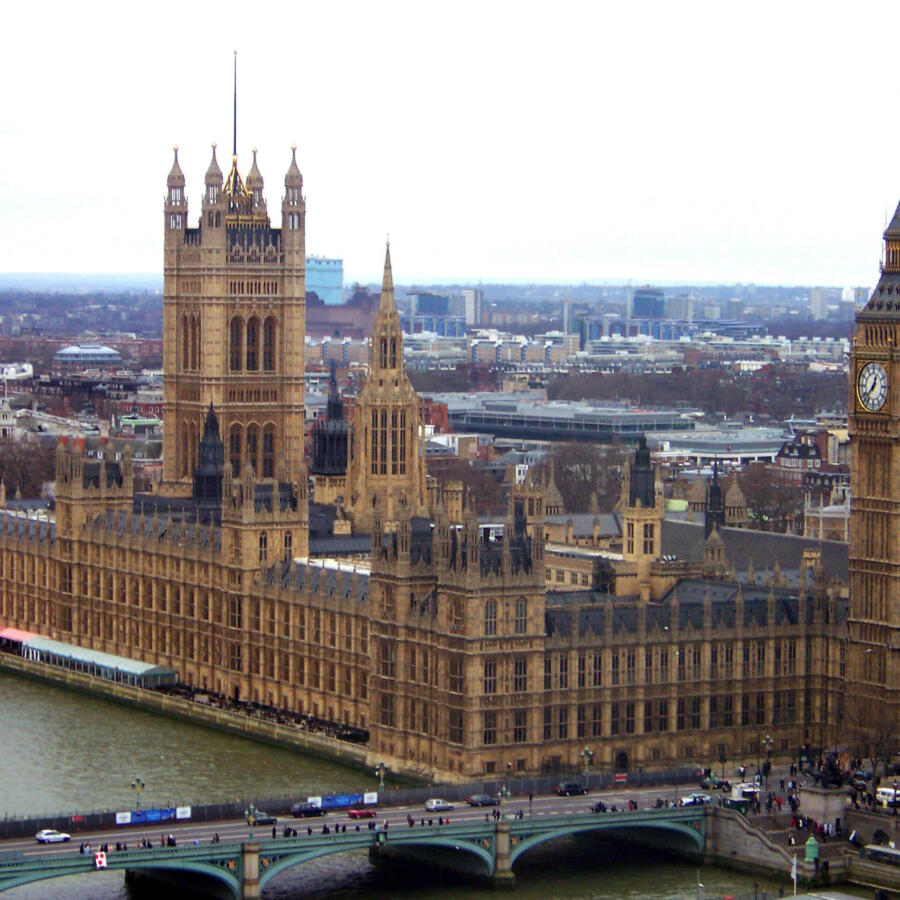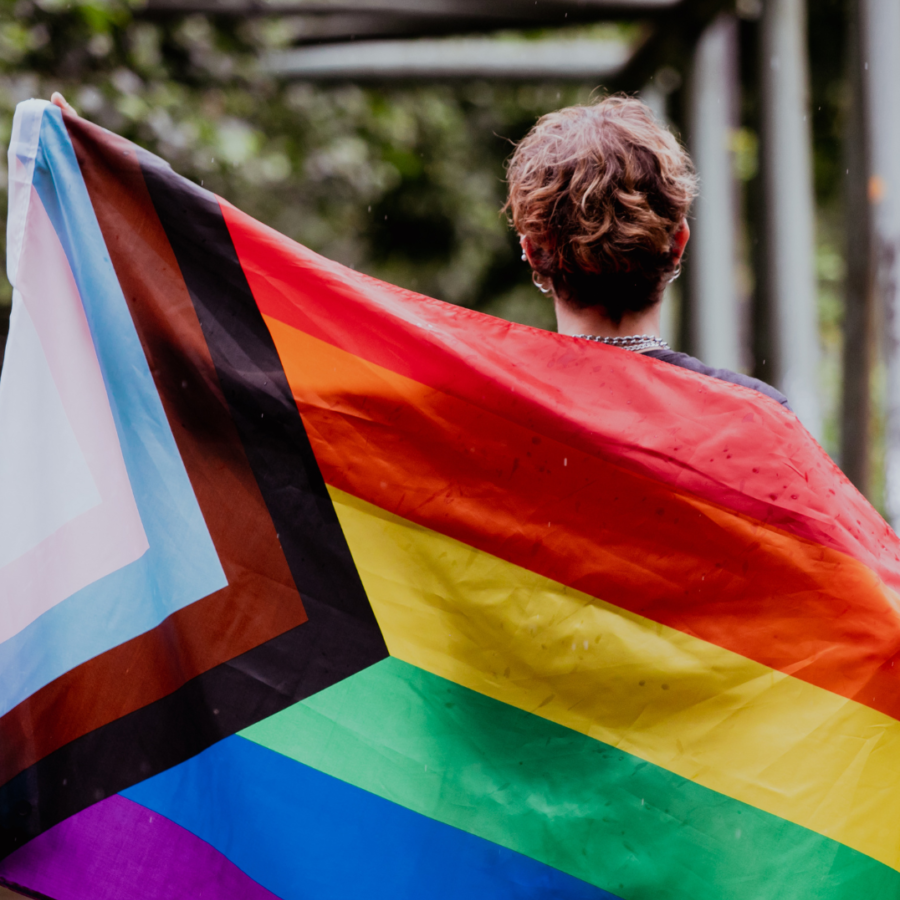Hate crime
Background
Rising levels of hate crime is a serious issue for the LGBTQ+ community. The latest home office statistics, published annually, show that there were more than 18,000 hate crimes motivated by sexual orientation and over 3000 trans related hate crimes between March 2024 and March 2025.
Although the data showed a slight dip in recorded hate crimes against LGBTQ+ people in 2024, there has still been an increase over the last five years. Hate crimes based on sexual orientation have risen by around 44% and those based on trans identity have nearly doubled over the past five years at 88%. LGBTQ+ hate crime charity Galop, saw a 60% increase in LGBTQ+ hate crime victims coming to them for support in 2024.
Behind these numbers are real people, and as a result, many LGBTQ+ people no longer feel safe being themselves in public. Stonewall’s research revealed that less than half of LGBTQ+ people feel comfortable holding their partners hand in public.
Following the UK Supreme Court ruling in April 2025, many are worried that this could lead to more hate crimes against LGBTQ+ people.
Everyone should feel safe to be themselves, no matter where they are. We’re committed to shaping policies and legislation which will make this a reality.
What is a hate crime?
The Crown Prosecution Service (CPS) defines a hate crime as:
“Any criminal offence which is perceived by the victim or any other person, to be motivated by hostility or prejudice, based on a person's disability or perceived disability; race or perceived race; or religion or perceived religion; or sexual orientation or perceived sexual orientation or transgender identity or perceived transgender identity.”
“There is no legal definition of hostility so we use the everyday understanding of the word which includes ill-will, spite, contempt, prejudice, unfriendliness, antagonism, resentment and dislike.”
It doesn’t matter if the victim actually belongs to the targeted group, what matters is the offender’s perception. Unlike hate crimes on the basis of race and religion, anti-LGBTQ+ hate crimes are not currently considered an aggravated offense, so the penalties aren’t as severe.
What is the difference between a hate crime and a ‘non-crime hate incident’?
For something to be considered a hate crime it must involve a criminal offence such as assault, harassment or criminal damage. If there’s no crime attached, this is a hate incident. For example, if someone assaults a person whilst shouting homophobic abuse, then that is a hate crime. If someone makes harmful comments about someone’s sexuality but they don’t commit a criminal offence, then that is a non-crime hate incident.
Police do not have to currently record hate incidents; but many policy makers would like to see this change and made a legal requirement.
Timeline of key legislative milestones
The UK’s journey to hate crime legislation for LGBTQ+ people has been a gradual process. There is not one single piece of legislation rather it happened through various amendments and new laws.
In England and Wales between 2005-2010, The Public Order Act 1986 was amended to include “hatred on the grounds of sexual orientation” in some of the “stirring‐up hatred” offences. This made it a criminal offence to use threatening or abusive behavior aimed at inciting hatred on that basis.
The Equality Act 2010 protects individuals from discrimination based on sexual orientation and gender identity in areas like employment and services. While not a hate crime law, it provides a legal basis for addressing prejudiced treatment.
The Sentencing Act 2020 (S. 66) requires courts to treat hostility based on sexual orientation or transgender identity as an aggravating factor when sentencing, leading to potentially longer sentences.
In June 2025, the government committed to incorporating an amendment into the Crime and Policing Bill to make serious crimes motivated by prejudice against LGBTQ+ individuals "aggravated offences," thus increasing penalties.
In February 2026, the Government have tabled an amendment to the Crime and Policing Bill which if passed, will make hate crimes against LGBTQ+ people an aggravated offence.
If this amendment is passed, it will send a powerful message that LGBTQ+ people deserve equal access to justice and that there is no hierarchy of hate. This is something we campaigned for with our Hold My Hand campaign.
Reporting
The LGBTQ+ hate crime statistics likely underestimate the true scale of the problem, as police-reported hate crimes represent only a fraction of actual incidents.
The Government's National LGBT Survey showed fewer than one in ten LGBTQ+ people report hate crimes or incidents while research from Galop in 2021 showed this figure as only one in eight, with half feeling the police would not ‘do anything’.
To reflect the true picture of hate crime, reporting needs to be as accurate as possible. There has been a lot of work to improve reporting. But there’s more to do to inform the community about reporting routes and ensure those affected by hate crime can access support. Stonewall is working to remove barriers to reporting and to better understand anti-LGBTQ+ hate crimes.
It is crucial that police have the tools to tackle the issue and support victims. As part of our international work, we helped to shape the way that European police forces tackle hate crime against LGBTQ+ people. We contributed to the European Police training guide which helps forces across the continent on how to respond effectively to anti-LGBTQ+ hate crime.
A timeline of Stonewall’s work in this area
Seeking stronger legal protections for anti-LGBTQ+ hate crime has been a key area of our policy work and campaigning for many years, here is a quick overview of what we have done so far:
1999-2000: We began publicly campaigning for homophobic hate crimes to be recognised in law, alongside race- and religion-motivated offences.
2003: We campaigned for sexual orientation to be included as an aggravating factor in The Criminal Justice Act 2003. This was delivered and it was the first time homophobic hate crime was formally recognised in sentencing law.
2008: We published a guide for victims of homophobic hate crime with North Wales Police. The guide aimed to support victims in reporting and navigating the system.
2013: We published a practical guide for police forces about how to protect LGB people and tackle homophobic hate crime.
2013-2017: We published a series of reports that included analysis on hate crime, under-reporting, and the lived experience of LGBT people in the UK. These reports helped to build a picture of the reality of anti-LGBTQ+ hate crime and were used as evidence in our advocacy. One of these reports was LGBT in Britain: hate crime and discrimination. We also published hate crime reports for both Wales and Scotland.
2018: We published our LGBT in Britian trans report which highlighted the profound levels of discrimination and hate crime faced by trans people in Britain. We also submitted written evidence to the Home Affairs Committee’s inquiry into hate crime and its violent consequences.
2020-2021: We submitted written evidence to the Law Commission review of hate-crime laws pushing for anti-LGBTQ+ hate crime to be made an aggravated offence and brought in line with hate crimes committed on the base of race or religion.
2022: In partnership with Vodafone and Galop, we launched Zoteria, an app for reporting anti-LGBTQ+ hate incidents and accessing support. In 2024, we then published analysis from the app: Hate Happens: Technology’s Role in Addressing anti-LGBTQ+ Hate Encounters in the UK.
2024: We launched Hold My Hand, campaigning for anti-LGBTQ+ hate crime to be made an aggravated offence.
2025: The government committed to incorporating an amendment into the Crime and Policing Bill to make anti-LGBTQ+ hate crime an aggravated offence, which we put forward with Rachel Taylor MP. This was supported by more than 100 MPs from across Labour, Conservative, Lib Dems and the Green Party.
2026: The Government have tabled an amendment to the Crime and Policing Bill which if passed, will make hate crimes against LGBTQ+ people an aggravated offence.
-
Thanks to decades of campaigning and research, LGBTQ+ people today have stronger legal protections from hate crime than they did 20 years ago. We also now have much more evidence, helping us understand the scale of the problem and the most effective ways to tackle it.
But LGBTQ+ people still face high levels of hate crime. There’s more work to do, and we will keep pushing for policies and legislation that truly protects everyone in the LGBTQ+ community.





